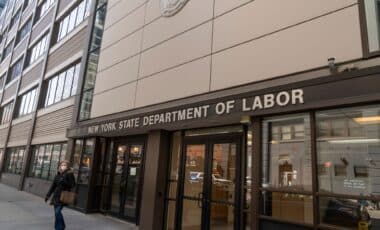In a bid to streamline operations and reduce costs, Sainsbury’s, one of the UK’s leading supermarkets, is set to implement significant changes that will impact its workforce.
Understanding Sainsbury’s Job Cuts
As part of Sainsbury’s £1 billion cost-cutting initiative over the next three years, the company plans to eliminate 1,500 roles across its stores. CEO Simon Roberts stated that this decision was necessary to support the company’s ‘Next Level Sainsbury’s’ strategy.
The planned job cuts will affect Sainsbury’s store support centre, contact centre operations in Widnes, in-store bakeries, and local fulfilment centres. If possible, Sainsbury’s has pledged to find alternative roles for affected staff.
Nevertheless, the “vast majority” of contact centre staff will be transferred to an external company with which Sainsbury’s already works, and the company’s Careline services will be fully operated by this external organisation in the future.
Furthermore, Bakers in affected stores will be subject to a consultation process. A few employees at local fulfilment centres may also be impacted, but Sainsbury’s will make every effort to find them alternative positions.
Changes to Fresh Food and Grocery Managers
Sainsbury’s will restructure its Fresh and Grocery Managers so that one manager will oversee both areas of the store. Previously, separate managers were responsible for fresh food and groceries, leading to some overlap in duties. Combining these roles will eliminate this redundancy while still ensuring appropriate oversight of day-to-day operations.
The company also plans to reduce the number of administration managers in each store. With better use of technology and automation in administrative functions such as HR, finance and payroll, fewer managers will be needed to handle these back-office tasks.
Sainsbury’s has stated that only some administration managers will be affected, and the company will attempt to find new roles for them wherever possible.
With the savings from the management changes, Sainsbury’s will be able to invest more in its frontline colleagues who serve customers directly. This will further improve the customer experience through better training, higher pay and additional opportunities for career progression.
Automated Production
Part of the cost savings will be achieved through increased investment in technology and automation, which will reduce the number of staff required to run stores and fulfilment centres.
“Funds saved through these measures will be reinvested in the business to continue to provide customers with great value, quality and service.”, according to the company.
Overall, Sainsbury’s is committed to support all employees affected by these changes. Through its ‘Next Level Sainsbury’s’ strategy, the company aims to strengthen its competitive position in the market by streamlining operations and reallocating funds.
However, it is important to note that job losses of this scale are likely to have a significant impact on employees and their local communities. Therefore, Sainsbury’s must handle this sensitive process with care and compassion.









